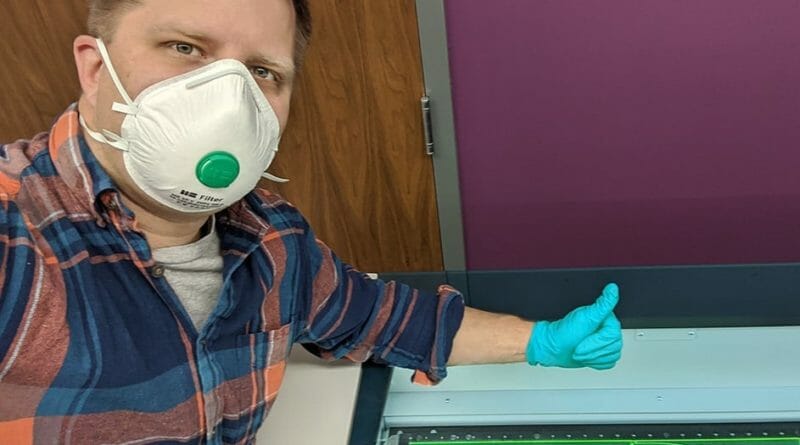Manufacturers Think Pandemic Could Lead to More U.S. Work
The shortage of health care supplies highlights this concern, but it extends to other sectors as well.
Ken Patsey, president and executive director of Manufacturing Works in Cleveland, had already started to see some trends away from Chinese manufacturing prior to the spread of COVID-19. Wages in China have been increasing, he noted, which meant it was getting more expensive to make products there. The tariffs implemented by the Trump administration served as another incentive for some companies to want to look at moving manufacturing out of China.
“They don’t want to jump out of one possible challenge into another,” Murphy said.
Ultimately, this isn’t a shift that can be made quickly; it takes time to move the manufacturing of a part, though assembly can be moved faster, Murphy said.
“They don’t want to jump out of one possible challenge into another,” Murphy said.
Ultimately, this isn’t a shift that can be made quickly; it takes time to move the manufacturing of a part, though assembly can be moved faster, Murphy said.
Quoting has picked up recently for members of the Independence- based Precision Metalforming Association, president David Klotz said, adding he thinks a decent amount of that is due to customers looking to bring back work to the U.S. Members of the association are metal fabricators and stampers that are part of the supply chain for industries ranging from medical to automotive to appliance.
Klotz compared the effect the pandemic could have on supply chains to what happened after an earthquake and resulting tsunami struck Japan in 2011. Companies started duplicating their tooling in the U.S. as a back-up to their work in Japan, he said.
Bill Adler, president and CEO of Stripmatic Products Inc. in Cuyahoga Heights, also thinks COVID-19 will cause his customers to re-evaluate risks to their supply chains. It’s not just this pandemic; it’s cumulative. Over the past 20 years, the world has seen SARS, the tsunami in Japan and dock strikes in the U.S.
“I think the supply base is going to look at this and say, ‘You know, there’s other unforeseen circumstances,’ ” Adler said.
Customers may start to ask if it’s worth saving “a fraction of a cent per part” for that exposure to interruptions, he added. Having a local supply chain doesn’t protect against all disruptions, but it does lessen the number of variables at play.
Adler hasn’t seen this shift happen just yet. In the past 18 months, metal fabricator Stripmatic Products has been able to get some reshored work, but that hasn’t been a large amount of products. The import tariffs raised the price of raw materials, which actually made it more difficult for the company to compete with overseas factories, Adler said.
Steve Peplin, CEO of Talan Products Inc. in Cleveland, started the metal stamping company in 1986 and remembers the different geographic shifts the industry has taken over the years, from a focus on the southern states to Mexico to China. In recent years, though, Peplin has seen sourcing shift back to local markets, with companies seeking supplies from the region where end products will be used, including the U.S.
Talan, which serves building products industries like solar energy and commercial roofing, doesn’t go after labor-intensive jobs, instead focusing on work that relies mainly on automation or machining. That means labor costs aren’t as much of a competitive factor.
Peplin said he thinks the flexibility of a local supply chain is what drives a lot of that shift. Being near a supplier means a customer can order more parts, or fewer, on shorter notice. When times are volatile, it’s more difficult to plan ahead, which is a necessity if a supplier is on the other side of the world.
Locally, Manufacturing Works is creating a resource to help connect Northeast Ohio manufacturers with customers looking to move their supply chain back to the U.S. The organization plans to launch a simple version of the resource in the next 30 to 60 days, Patsey said, with a goal of adding more value-added components in the future. Manufacturing Works had started looking at this idea about six months ago, but the supply-chain issues caused by the pandemic brought the project to the forefront.
“I really think the time’s right for that, to not only U.S.-source but start to consider local-source,” Patsey said.

